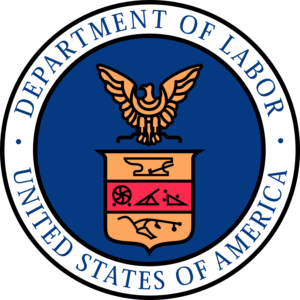Ward Law LLC is dedicated to keeping our clients informed about all things COVID-19 related. Our business is to ensure that you have all the information you need to keep your business going. In that regard, please read below for the Department of Labor’s clarifications on the Families First Coronavirus Response Act.
FFCRA Clarifications by Department of Labor
 Recently, we wrote about the U.S. Department of Labor (“DOL”) issuing clarifications on application of certain portions of the Families First Coronavirus Relief Act (“FFCRA”). The crux of our recent update was to detail the small business exemption mentioned in the FFCRA, which is notably, as it turns out, a relatively narrow exemption. However, the clarification issued by the DOL also covers other elements of the FFCRA. Therefore, it is prudent that we supplement our report to update our clients and others on the notable areas of discussion from the DOL.
Recently, we wrote about the U.S. Department of Labor (“DOL”) issuing clarifications on application of certain portions of the Families First Coronavirus Relief Act (“FFCRA”). The crux of our recent update was to detail the small business exemption mentioned in the FFCRA, which is notably, as it turns out, a relatively narrow exemption. However, the clarification issued by the DOL also covers other elements of the FFCRA. Therefore, it is prudent that we supplement our report to update our clients and others on the notable areas of discussion from the DOL.
FFCRA Leave Time:
The FFCRA consists of two separate areas of benefit with separate but overlapping qualifications. The Emergency Paid Sick Leave Act (“EPSLA”) provides 2-weeks of paid sick leave for those who qualify. The FFCRA also expands the Family and Medical Leave Act (“FMLA”) with the Emergency Family and Medical Leave Expansion Act (“EFMLEA”). Many have asked whether the leave under the EFMLEA is in addition to the maximum 12 weeks of leave provided under the FMLA. The DOL guidance on the issue is unequivocal that the total amount of leave, whether it is emergency paid leave under the EFMLEA or classic unpaid leave under the FMLA, the total leave provided may not exceed 12 workweeks in an employee’s specified 12-month period. In other words, no matter the reason for the family leave, the EFMLEA does not provide any additional leave time over what had been provided even before the COVID-19 outbreak. An employee is limited to a total of 12 weeks leave under either the FMLA or EFMLEA no matter how it is broken out.
The DOL did note that the 2-weeks of paid leave provided under the EPSLA, assuming an employee is eligible, must be provided no matter the amount of leave taken under the FMLA/EFMLEA. The two types of leave are separate from each other. Therefore, under certain qualifying circumstances, an employee may end up being able to take a total of 14 weeks of paid leave under the FFCRA.
We should point out that the leave discussed herein is strictly leave provided under the most recent federal guidelines and legislation. The DOL also made it clear that the FFCRA leave is in addition to any other forms of earned sick leave or personal leave either existing prior to the virus outbreak or as a result of any new state or local provisions for leave. That is, of course, unless the state or local provision says otherwise.
Job Protection:
Another common question we have been hearing is how an employer must handle an employee who takes FFCRA leave when it becomes time to return to work. Generally speaking, employees who take FFCRA leave have a right to return to work and are protected from retaliation by the employer. They are required to be returned to the same or equivalent job they held before taking leave, which was the standard even prior to COVID-19. The employer may not terminate, discipline or otherwise discriminate against employees who take FFCRA leave. The DOL specifically pointed out, however, that employees who take FFCRA leave are not protected from employment actions that would have happened regardless of FFCRA leave taken. As has always been the case, an employer may lay off or terminate employees for legitimate business reasons. If an employee is laid off while on leave, and the layoff is for a legitimate business reason (such as closure of the worksite), then the employee is not entitled to reinstatement at the end of leave. We should caution employers, however, that such action may invite claims of retaliation regardless of whether the reason for layoff or termination is legitimate. Employers should be especially careful when making these decisions because, once a claim is filed, the employer will need to expend time and money to defend.
For any questions about the DOL’s clarifications on the Families First Corona Response Act, please email the Ward Law helpline any time at covid19helpline@thewardlaw.com.
